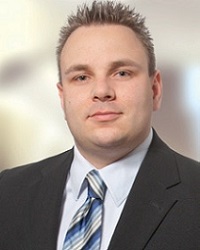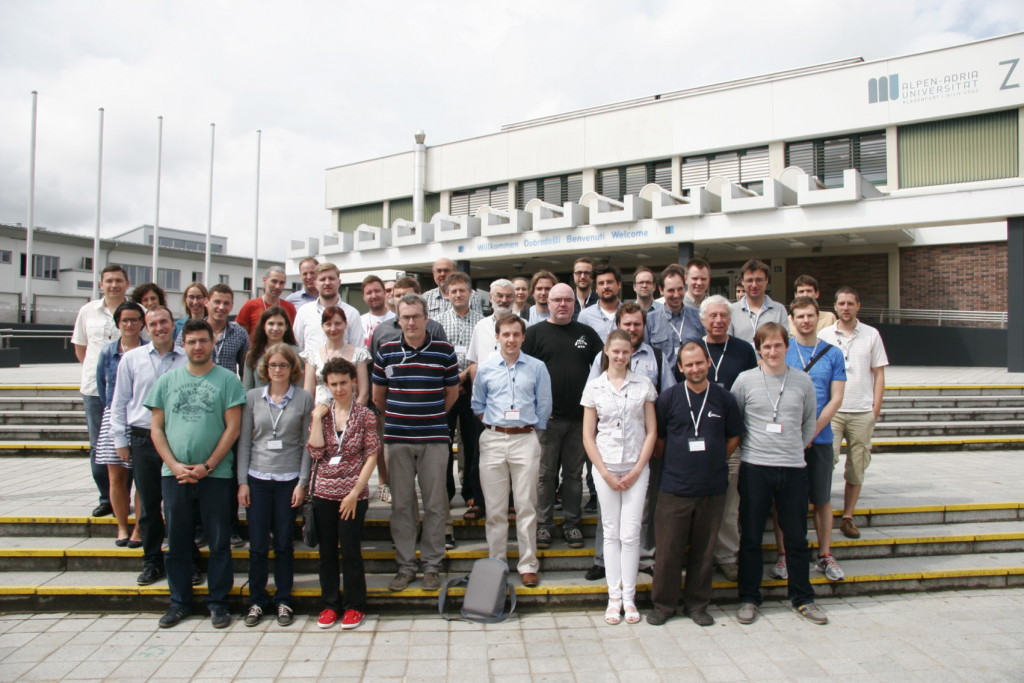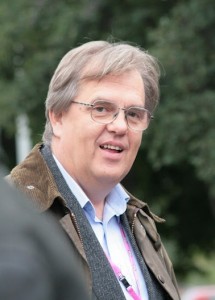Alexander Beck | 10.12.2015 | 15:00 Uhr | HS 4
Kurzfassung
IT-Systeme sind stark zusammenhängende komplexe Strukturen, so dass eine Fokussierung auf das IT-System im Ganzen nur eine bedingt effiziente Sicherheitsbewertung gewährleistet. Die Sicherheit dieser komplexen Systemlandschaften stets aktualisiert unter Berücksichtigung aller Wechselbeziehungen zwischen Komponenten dieser Systemlandschaften darzustellen, gestaltet sich mangels geeigneter Modelle schwierig. Neben diesen Modellen bilden Schwachstellenbewertungen die Grundlage für die Bewertung der Sicherheit und werden durch aufwändige Betrachtungen interpretiert, um eine Gesamtbewertung zu ermitteln. Will man dieses Vorgehen automatisieren, muss zunächst eine gemeinsame Repräsentation von Schwachstellenbewertungen vereinbart werden. Das dazu geeignete Common Vulnerability Scoring System (CVSS) ermöglicht die Bewertung einzelner Schwachstellen hinsichtlich verschiedenster Fragestellungen. Um eine Darstellung der Gesamtsicherheit zu erreichen, müssen diese Schwachstellen aggregiert werden. Unter einer Aggregation ist dabei die gemeinsame Interpretation aller im Fokus stehenden Schwachstellen zur Erreichung einer Gesamtbewertung zu verstehen, welche auf Basis eines neuronalen Netzwerkes erfolgt. Das neuronale Netz ist ein lernfähiges Konzept der Informatik, mit dem es möglich ist auf Basis definierter Eingabeparameter ein definiertes Ergebnis zu modellieren. Dabei wird das Netz trainiert und die Ergebnisse mit Ergebnissen der bisherigen manuellen Bewertungsverfahren verglichen, bis eine entsprechende Qualität der automatisch ermittelten Ergebnisse gesichert ist.
 Alexander Beck ist seit 2011 bei der Volkswagen AG tätig. Zuvor studierte er Informatik an Hochschule Harz und Otto-von-Guericke-Universität Magdeburg unter anderem mit den Schwerpunkten Datenintensive Systeme und Sicherheit. Im Rahmen seiner Dissertation erforscht er Verfahren zur automatisierten Sicherheitsbewertung von komplexen heterogenen IT-Infrastrukturen auf Basis neuronaler Netze.
Alexander Beck ist seit 2011 bei der Volkswagen AG tätig. Zuvor studierte er Informatik an Hochschule Harz und Otto-von-Guericke-Universität Magdeburg unter anderem mit den Schwerpunkten Datenintensive Systeme und Sicherheit. Im Rahmen seiner Dissertation erforscht er Verfahren zur automatisierten Sicherheitsbewertung von komplexen heterogenen IT-Infrastrukturen auf Basis neuronaler Netze.
Beruflich war er mehrere Jahre in der Informationssicherheit im Volkswagen Konzern tätig und beschäftigte sich mit den Themen Authentifizierung und Verschlüsselung. Aktuell arbeitet er im Bereich IT Projekt- und Programmmanagement der Volkwagen Financial Services AG und verantwortet IT Projekte im In- und Ausland.







 Kuflik heads the Information Systems Dept. at The University of Haifa. Over the past ten years, the focus of his work was on ubiquitous user modeling applied to cultural heritage. In the course of his work, a “Living Lab” has been developed at the University of Haifa – a museum visitors’ guide system was developed for the Hecht museum. It is available for visitors on a daily basis and serves also as a test bed for experimenting with novel technologies in the museum. Currently, the system is being used for research on Social Signal Processing where signals transmitted by devices carried by the visitors are used for modeling group behavior, in order to reason about the state of the group visit. Another research direction focusses on the use of intelligent user interfaces in ubiquitous computing within the “living lab”. Where issues like interaction with large, situated displays; interrupt management; navigation support; temporal and lifelong aspects of ubiquitous user modeling are studied. Tsvi got BSc. and MSc. In computer science and PhD. In information systems from Ben-Gurion University of the Negev, Israel. Over the years Tsvi collaborated with local and international researchers, supervised graduate students working with him on this research, organized the PATCH workshops series (Personal Access To Cultural Heritage) and published about 200 scientific papers, out of them 30 papers about this specific research. Tsvi is also a distinguished ACM scientist and a senior IEEE member.
Kuflik heads the Information Systems Dept. at The University of Haifa. Over the past ten years, the focus of his work was on ubiquitous user modeling applied to cultural heritage. In the course of his work, a “Living Lab” has been developed at the University of Haifa – a museum visitors’ guide system was developed for the Hecht museum. It is available for visitors on a daily basis and serves also as a test bed for experimenting with novel technologies in the museum. Currently, the system is being used for research on Social Signal Processing where signals transmitted by devices carried by the visitors are used for modeling group behavior, in order to reason about the state of the group visit. Another research direction focusses on the use of intelligent user interfaces in ubiquitous computing within the “living lab”. Where issues like interaction with large, situated displays; interrupt management; navigation support; temporal and lifelong aspects of ubiquitous user modeling are studied. Tsvi got BSc. and MSc. In computer science and PhD. In information systems from Ben-Gurion University of the Negev, Israel. Over the years Tsvi collaborated with local and international researchers, supervised graduate students working with him on this research, organized the PATCH workshops series (Personal Access To Cultural Heritage) and published about 200 scientific papers, out of them 30 papers about this specific research. Tsvi is also a distinguished ACM scientist and a senior IEEE member.